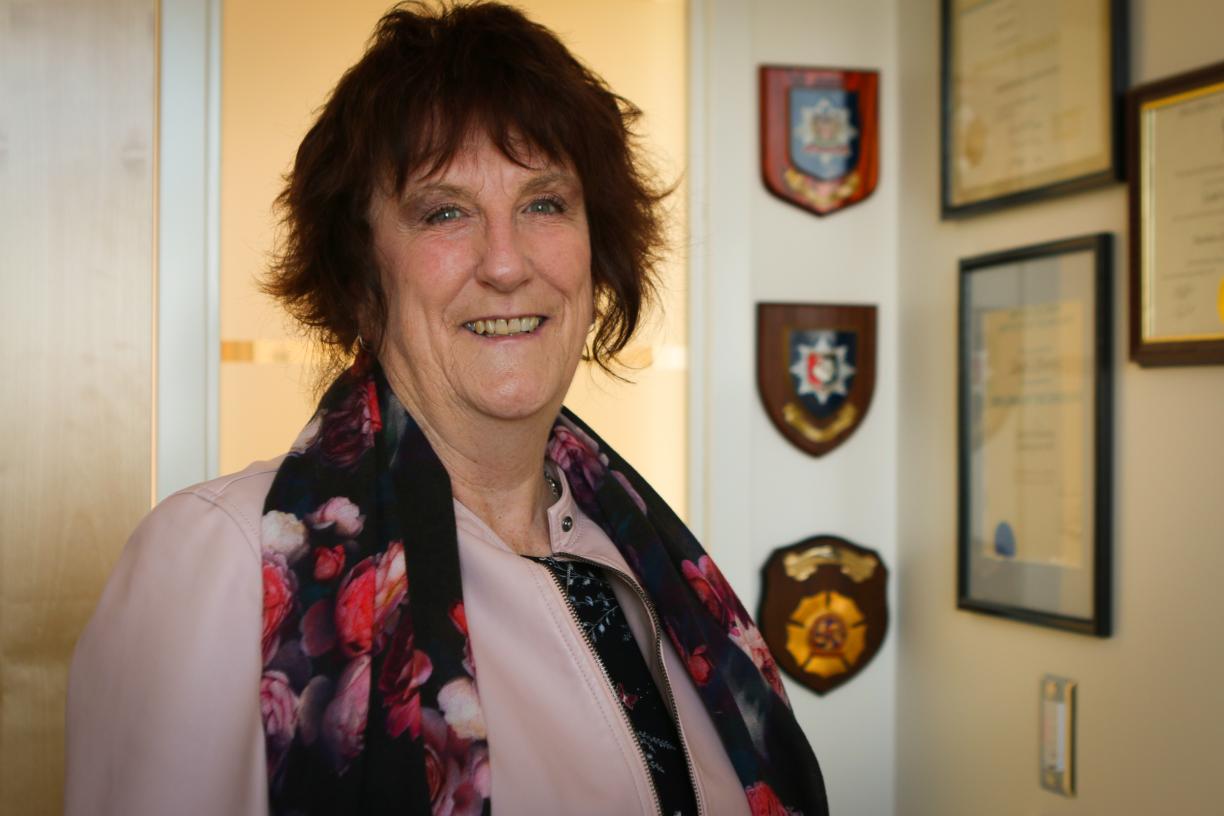A VIU professor is helping volunteer firefighters cope with the physical and mental effects they may experience when they are involved in a traumatic incident.
Firefighters are the real-life heroes. The people who put their lives on the line to save our homes and rescue us from motor vehicle accidents. They also have a higher than normal exposure to horrific events than the average person.
“There are 14,000 firefighters in the province, and 10,000 of those are volunteers who train rigorously in how to fight fires and rescue people from car crashes while staying physically safe; however, they receive little training that helps protect their emotional safety,” says Dr. Leigh Blaney, a professor in the Faculty of Health and Human Services at Vancouver Island University (VIU).

“Resilience is very complex,” says Blaney. “We look at resilience as a system of interrelated and interconnected pathways through adversity, and there are physical, spiritual, emotional, cognitive, behavioural aspects to it, but resilience is actually multi-dimensional, multi-layered and it is changing all the time.”
More than 60 volunteer firefighters from around Vancouver Island and adjacent Gulf Islands received training earlier this year in a pilot project funded by WorkSafeBC and VIU.
The workshops focused on six core categories of building resilience to help confront and deal with workplace adversity more skillfully.
To measure the effectiveness of the training, participants engaged in pre- and post-tests. The resilience scores before education, immediately after the training and again two months later are being analyzed. Blaney says their initial findings are very exciting.
“We are seeing evidence that building resilience can be taught and practiced and that education increases resilience scores in a statistically significant way,” she says. “The firefighters have a much greater depth and breadth in their understanding of what resilience is – a health concept. They are using the strategies such as mindfulness and positive reframing daily or weekly to build their personal capacity.”
VIU has provided some additional funding to begin a pilot project for emergency room nurses.
Blaney would like to see a resilience training curriculum integrated into all volunteer fire departments, then eventually expanded to all emergency services personnel, such as search and rescue volunteers, nurses and paramedics.
Blaney and volunteer firefighter Robert Fell, through his company Hypersurge, are also working on a real-life scenario video game or an app that can be used in resilience training to make it available everywhere.
“This has the potential to shield emergency responders from the harmful effects of their jobs on their health and mental well-being,” says Blaney. “People are more resilient than they think they are. But they feel overwhelmed at times with some of the situations they face and the reactions they experience. To be able to normalize those reactions and remind people of the capacities and strengths they have within them to carry on is something we can all get behind. I depend on these folks for my life and for my property so it’s really important to give something back to them.”
-30-
MEDIA CONTACT:
Annette Lucas, Communications Officer, Vancouver Island University
O: 250.741.2020 | C: 250.618.7296 | E: Communications@viu.ca





